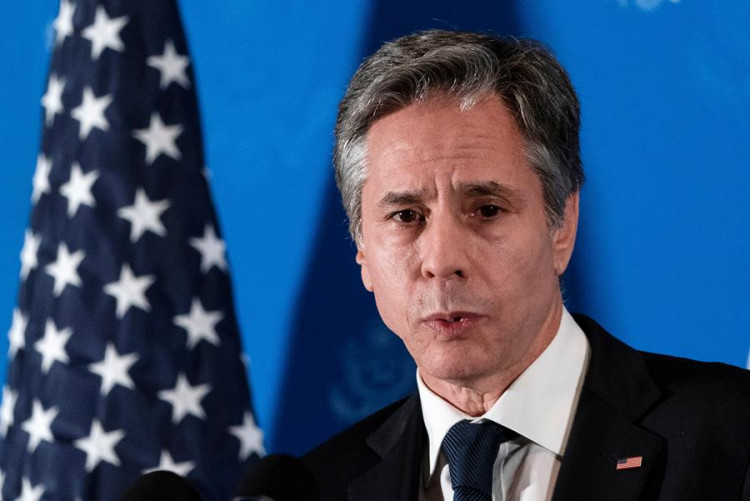In the shadow of ongoing urban warfare in the Gaza Strip, U.S. Secretary of State Antony Blinken has embarked on a crucial diplomatic mission to Israel, advocating for a humanitarian reprieve amidst a harrowing conflict. His second visit to the region within a month underscores the urgency with which the Biden administration seeks to curb the violence that has led to substantial civilian casualties.
With Israeli forces intensifying their encirclement of Gaza City, Blinken's agenda is set to push for temporary humanitarian pauses, aiming to alleviate the dire shortages of food, fuel, and medical supplies faced by Gazans. The Gaza health authorities have reported a distressing number of casualties, with at least 9,061 individuals, many of whom are women and children, having perished since the onset of the hostilities. Israel's deadliest day in its history, marked by attacks on October 7, saw 1,400 lives lost, attributed to the Iran-backed Hamas, which also reportedly took more than 240 hostages.
"We will be talking about concrete steps that can and should be taken to minimize harm to men, women, and children in Gaza," Blinken expressed prior to his departure. This comes in response to the international outcry over the Israeli military's heavy bombardment in the conflict-ridden enclave, which has also been met with fierce resistance from Hamas, using tactics from underground tunnel combat to aerial drone attacks.
The notion of a 'pause', as advocated by President Biden, has been received with skepticism by some, suggesting it's a euphemism for a ceasefire - a stance Israel has resisted. Prime Minister Benjamin Netanyahu maintains that such a ceasefire would effectively yield to Hamas, a scenario he has vowed to prevent. Meanwhile, Israeli military voices project concerns that any cessation would allow Hamas militants to regroup.
Amidst these tensions, Blinken's discussions will also delve into the long-term future of the region, including the governance of Gaza post-conflict and the ever-elusive prospect of an independent Palestinian state. The White House has reiterated America's support for Israel's right to self-defense, aligning with international humanitarian law, while dismissing the demand for a comprehensive ceasefire.
As the war presses into its fourth week, the humanitarian crisis looms large. The Rafah crossing into Egypt has witnessed evacuations under a Qatari-brokered agreement, allowing foreign nationals and critically injured Palestinians to leave the strife-torn region. Moreover, the plight of Palestinian workers, allegedly detained and maltreated by Israeli authorities before being sent back to Gaza, has added to the humanitarian concerns.
On the diplomatic front, Ireland's Prime Minister Leo Varadkar voiced one of the strongest European criticisms of Israel's military actions, cautioning against what could be perceived as a pursuit of 'revenge'. Additionally, the United Arab Emirates has been vocal about the necessity of a ceasefire, stressing the escalating risks of regional escalation and further conflicts.
Blinken's visit not only signifies a search for immediate relief for Gaza's beleaguered populace but also reflects a broader American strategy to influence the future geopolitical landscape of the region. As the world watches, the streets of Gaza City hold out for a ceasefire, with Palestinians hoping for an end to the violence that has so dramatically altered their lives.





